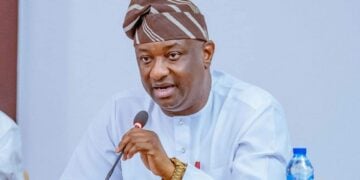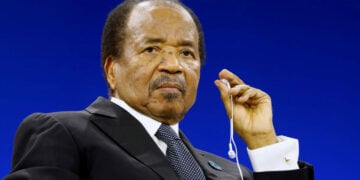The Federal Government has stated that investment in telemedicine and digital health systems were being deepened as part of efforts to achieve Universal Health Coverage (UHC) and expand equitable access to healthcare across the country.
This renewed commitment was restated in Abuja on Thursday at the Nigeria Telehealth Conference 2025, themed: “Scaling Telehealth for Universal Health Coverage in Nigeria: Pathway to Sustainability.”
The forum brought together stakeholders from government, development organisations, and private sector to assess progress and outline next steps for digital health integration nationwide.
Minister of State for Health and Social Welfare, Dr Iziaq Salako, described the conference as an important point in Nigeria’s digital transition for health.
According to Salako, the Federal Ministry of Health was working to reduce both physical and financial hurdles so that more Nigerians, especially in underserved communities, can receive quality care.
“Technology is a catalyst for transforming our health system. Telemedicine bridges workforce gaps and connects rural or under-resourced communities to qualified doctors,” Salako said.
He also stressed that President Bola Tinubu’s Renewed Hope Agenda seeks equitable and affordable health access for all Nigerians, noting that the Nigerian Health Sector Renewal Investment Initiative was designed to modernise the system, with the Nigeria Digital in Health Initiative as a major pillar.
While acknowledging challenges such as infrastructure deficits, limited digital literacy, data privacy concerns and regulatory gaps, Salako said consultations and cooperation with private sector and development partners were ongoing.
He further noted that governance frameworks and guidelines were being finalised to enhance quality assurance, security and accountability in the telehealth space.
The minister said the conference also served as a national avenue to display emerging digital health tools, including e-prescription services, immunisation tracking systems, referral platforms and digital health insurance claims solutions.
Salako added that deliberations from the Abuja conference will help shape the National Telehealth Sustainability Framework, expected to be presented to the National Council on Health later this month.
In her remarks, the Mandate Secretary for Health Services and Environment in the Federal Capital Territoty (FCT), Dr Dolapo Fasawe, said the meeting represented a significant milestone in advancing sustainable healthcare delivery.
Fasawe added that the FCT had begun implementing telemedicine services at primary health centres, with the first telemedicine booth inaugurated at Dutse Makaranta PHC in partnership with MobiHealth International.
“Telemedicine proved essential during COVID-19 and remains vital today, supporting thousands of patients remotely in spite of ongoing doctors’ strikes,” Fasawe said.
She noted that remote consultations now connect patients to cardiologists and paediatricians, and pregnant women under the FCT health insurance scheme have access to timely, free delivery services.
Fasawe added that skilled birth attendance in the territory has risen from 25 per cent to 102 per cent due to improved service delivery, monitoring and accountability measures.





